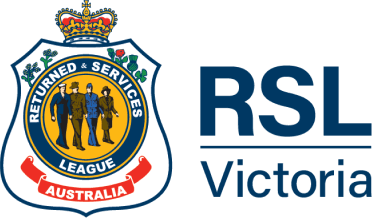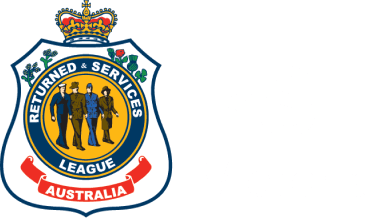Editor's note: There are few military engagements that have touched Australians like the Kokoda Trail Campaign. The stories and images from the campaign are harrowing, and the bravery of the men who were on the track an inspiration. Last year RSL Victoria had the privilege of interviewing one of those brave men, Cec Driscoll, as part of our coverage of the 75th anniversary of Victory in the Pacific (also known as VP Day). This week we learnt that Cec had sadly passed away. He was 101 year's old, having celebrated his birthday on Wednesday, October 13. Of Cec, our writer Lisa Cooper said he was such a character and will be missed by a lot of people. The RSL community echo's that statement. We are re-publishing our VP Day story here, with permission from Cec's family, in memory of and tribute to Cec.
We hope that this story gives our readers a sense of who Cec was – A man who would not call himself a hero, despite the fact that so many of us did consider him one.
On July 21 next year we will commemorate the 80th anniversary of the Kokoda Trail Campaign, and at this time men like Cec will not be far from our minds.
Lest we forget.
Photography: The Australian War Memorial and Lisa Cooper
Date: 21/10/2021
With August 2020 marking 75 years since the end of the Second World War, many will be reflecting on the service and sacrifice of those who gave up so much for what they believed in.
One of those who remembers that time clearly is Cec Driscoll of Mildura - the last remaining veteran of the famed 39th Battalion from the Second World War in the Mallee.
In July 2020 at 99 years of age, his body may have slowed but his memory is sharp. Recalling his time in the army, Cec tells of high times and low, all as if they happened yesterday.
The second eldest of seven children to Cecil and Alice Driscoll, and the eldest son, Cec was born in Merbein in October 1920. When Cec was in second grade, his family moved from Merbein to Moonambel, near Avoca, where his father worked as a shearer and beekeeper.
When aged 11 years old, Cec and his family suffered a tragic loss. His father passed away after an abscess formed in his ear and surgery failed to fix it.
“It wasn’t good, not for mum anyway. We don’t know how she did it. She was a wonderful woman.” recalls Cec.
The death of his father would not only impact Cec as a boy, with the family selling up and moving back to Merbein, but also as a young man during wartime.
Like many young men at the time when the Second World War broke out, 20 year old Cec was eager to enlist. Several of his mates from Merbein had been called up, leaving Cec waiting for word on his own enlistment.
“I went in to see the Captain in Mildura because all of my mates had been called up and I hadn’t, and yet I passed the medical.
“I was so disappointed, I went rushing in there on the Saturday and I asked, ‘what’s going on?’ and the Captain said, ‘we can’t call you up, you’re like a married man.’”
“They treated me like a married man because I didn’t have a father and I was the eldest son.”
"I said, ‘well how am I going to get in the bloody army?’ and he said ‘volunteer.’ He said, ‘put your hand on that bible and I’ll swear you in,’ and he swore me in on the spot."
Cec Driscoll
With that, Cec had volunteered to serve, and soon joined the 39th Australian Infantry Battalion which was already in training.

Joining the 39th late in the piece meant Cec missed out on a lot of training himself. Bonegilla camp was Cec’s first real taste of army life, and it came as a shock.
“The day we went down to join the 39th was the day they marched through Melbourne. So we weren’t part of that. We had to go to Bonegilla and I got the biggest fright I’d ever seen.
"We were like kindergarten soldiers [compared to the others]. We’d only done five weeks in the bull ring, that’s what we called it. It was like the first few weeks of school."
Cec Driscoll
Embarking for service in New Guinea soon after arriving at Bonegilla, this boy from the Mallee recalls his journey, saying, “That was the first time I’d seen the ocean. I didn’t like the sea.”
But it was his lack of route march experience that today makes Cec laugh.
“My first route march was from the boat at Moresby out to Seven Mile Drone. The next one was over the Owen Stanley’s.”
Those first few weeks stationed at Port Moresby, and at Bootless Bay, was a time of frequent air raids by the Japanese. Remembering the dog fights overhead still leaves Cec in awe of Australia’s pilots.
“We used to find the biggest hill we could find and climb up to get closer to them, so we could see them easier.
“Oh, they were brave blokes, they were very brave men. They’d peel off seven or eight and fly straight into forty Zeros. Gees they were brave.”
Originally part of the 39th Battalion’s C Company, Cec was transferred to B Company just as they were about to make their way across the Kokoda Track – the first group to do so.
The 39th were ordered over the Track when the Australian command learned of the possibility of the Japanese landing on the north coast. They eventually would, at Buna and Gona on the night of July 21-22, 1942. Cec and his mates were nearby when the Japanese landed.

“We walked over the mountains and we’d been at Kokoda about a week, and they told us, ‘you’re going to do a forced march.’ You had to keep walking until you dropped. No stopping. And we had to carry our own gear, ammunition, food, everything.
"Then we got down to Oivi and we could hear bombs dropping. And we said, ‘what’s going on?’ They told us a Japanese convoy had landed at Buna, and B Company was to head down there to meet them."
Cec Driscoll
"I was part of that. In fact, I could say with some certainty that I’m the only one left out of those sixty blokes. All the rest have died."
Cec Driscoll
Amongst that first group from the 39th Battalion to encounter the Japanese on the north coast, Cec would be involved in all but one battle that the 39th was involved in.
"Brigade Hill was the only one I missed. That and the bloody parade where Blamey called us rabbits!"
Cec Driscoll
“After we got out of Isurava, I don’t know when, I woke up one morning and I was on the bloody ridge on my own. I didn’t know they were going. They didn’t leave me behind, I think I passed out.
“We’d had nothing to eat or drink for days and we withdrew twice [from Isurava], once back into the 14th Battalion lines then we withdrew with the 14th back a little bit more. We’d been going at it for about five or six days.

“Well that night, we got back and these 14th Battalion fellas, one bloke gave us a tin of bully beef between three of us. Gawd we rammed that down. They gave us water, too.
“I had a boil on my lip. I didn’t know at the time, but I was also rotten with malaria. Anyway, we’d been battling two days hard and I couldn’t move. I think I passed out, because at 11 o’clock at night a bloke tripped over me and he just said, ‘oh sorry mate.’ I said, ‘that’s alright cobber.’ And I just curled up and when back to sleep.
"They were withdrawing. I woke up in the morning and I was looking around, nobody here, I’m on my own. And I thought ‘oh god this is great’. So, I got a grenade in this hand, and a rifle in this one and I’m getting down the hill and got out about three mile and come to our blokes."
Cec Driscoll
Cec made it back to Port Moresby weeks later. He was treated for malaria, the doctor weighing him for the first time after weeks on the track.
“He told me I was six stone eight. I said, ‘that’s bloody wrong.’ When I got to New Guinea, I was ten stone four. I weighed that after thirteen or fourteen weeks on the track.”
Cec may have escaped being seriously wounded while in New Guinea, but he wasn’t left completely unscathed. Like so many others, Cec casually describes his many near misses, including an incident out on reconnaissance with three others near Gona when he tripped and fell.

“I must have fallen down in a low spot because they started shooting across my back and of course I got hit on the clip. I had a bandolier around my waist, spare ammo, and it hit the clip and dug into my behind and bruised it.
“It was a beauty. I put my hand down there and there was no blood. The bullets were pretty close, came out of the machine gun and flame was out between my legs. Oh, I was lucky.”
Cec also recalls a near miss with a “drop short” from Australian lines.
"You’d hear them coming and you’d hold your breath. I had one land in the side of my trench but he landed on his flat, he didn’t explode. If he’d landed on his nose I wouldn’t be here."
Cec Driscoll
Cec would eventually join the 2/2nd Australian Infantry Battalion in New Guinea after the 39th was disbanded in July 1943.
While Cec was is New Guinea, his brother, Albion ‘Ab’ Driscoll was also in the Forces. Ab first served in New Guinea with the 2/32nd Battalion before being transferred to artillery, in the 2/12th Field Regiment at Morotai and Tarakan, and in the landings at Labuan. Ab returned to the 2/32nd at the end of the war, guarding Japanese prisoners at Rabaul.
Today, there are just eight known surviving veterans of the 39th Battalion from the Second World War.

Loved and respected by his family and friends, Cec loves a chat but is modest when it comes to his time in New Guinea. When asked how he feels about the 39th being regarded as heroes, Cec had this response.
"Oh, I don’t think we were heroes. We just done what we were asked to do, or told to do. We had no option. We were just ordinary people. We did what we had to do at the time."
Cec Driscoll

